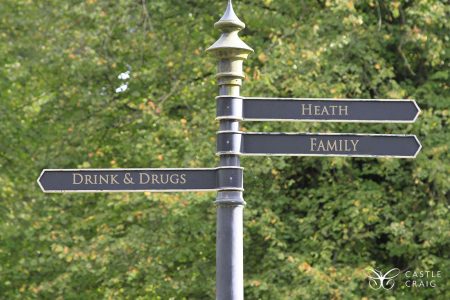Table of Contents
All drugs can harm you if taken irresponsibly or for a prolonged length of time, and they don’t have to be illegal to be risky. Alcohol, over-the-counter pills to relieve pain and well-known cold medicines are on sale in every single supermarket but they can all be fatal if taken for a long time or in large amounts.
Anyone who takes a drug to chase a high knows that it comes with risks. However, you may not realise the danger you could be in, especially as you don’t know how strong your drug is and what it’s been cut with. If you believe you or someone you know has an issue with drug misuse, irrespective of whether it is prescribed medication, you need to seek addiction treatment.
Here we list the top drugs that are most likely to kill you.
Cocaine/Crack
Cocaine, also known as ‘coke’ or ‘Charlie’, comes from the dried leaves of the coca plant. When it’s in powder it’s usually referred to as cocaine and in the rock form – which has been cooked with baking soda and water – is known as crack or crack cocaine.
Cocaine is the second most widely used illegal drug in Western Europe, after cannabis. A highly addictive stimulant, it can reel you in after just one use. It causes widespread damage to the body and can impair vital organs including the heart, kidney and brain, which can lead to heart attacks, stroke and death. Cocaine also has psychological effects which result in depression and suicidal feelings.
If you take cocaine regularly, you are four to eight times more likely to die than another person of your age and gender. Cocaine is not a cheap drug and is often linked with high-earners who may hide their substance misuse from others. Studies show that most deaths from cocaine affect employed men in their 30s and they tend to happen at the weekend.
Crack, which is usually smoked with a crack pipe, tends to have a much shorter high than cocaine – just 10 minutes compared to up to two hours – which makes it even more addictive. Users binge crack cocaine in a bid to chase the high and this can result in drug overdose and death.

Discover How We Can Help You
Alcohol
It is ingrained into our social lives, forms part of our celebrations and accompanies us on our commiserations, yet alcohol is highly addictive and kills three million people a year, mainly men. This means that one in 20 deaths can be attributed to alcohol misuse.
The move from enjoying an occasional drink, to binge drinking at weekends to alcohol use disorder can be quick and it can be subtle. Many people don’t know – or won’t admit – that they have a problem with alcohol, but drinking a bottle of expensive wine every day at dinner can be just as dangerous as downing bottles of cheap cider while sitting on the street.
Long-term alcohol misuse is the underlying cause of more than 30 potentially fatal health conditions, including cancer, heart and liver disease. It also slows your reflexes and more than a quarter of deaths from alcohol misuse are from accidents and injuries.
If you can’t imagine getting through a day without alcohol, you need urgent addiction treatment.
Flakka
Flakka, or ‘gravel’, is a relatively new synthetic street drug that looks similar to a drug called ‘bath salts’ but is actually far more dangerous. It comes in the form of pink or white crystals and smells foul. It can be snorted, eaten, injected or vaped.
While flakka is a manmade cathinone (which means it is related to the amphetamine family), it is usually made abroad with unknown chemicals. To avoid it being detected by border control the chemical formulations are often changed, which means you have no idea what you are taking.
Flakka highs can be aggressive and manic with users becoming violent to themselves or others, and physical symptoms include heart attack, seizure, prolonged psychosis and death. It is cheap, which makes it attractive to someone with a substance use disorder and it is highly addictive, so the risk of overdose is high.
Due to its unknown quantity, just one dose of flakka is potentially fatal.
Contact Us Today
Your path to lasting recovery starts here
Benzodiazepines
The ‘benzos’ are a group of sedatives, which includes Valium and Xanax, that have a calming effect on your brain and body. They are prescription drugs that are used to treat pain, seizures and anxieties but they are highly tolerable, which means before long you need more to achieve the same effect. Addiction can develop in just weeks.
You may not realise that you can develop a substance addiction from medicine the doctor has given you, and you might not see how ‘popping another pill’ to relieve pain in your back or joints, is the same as drug misuse. However, benzodiazepines cause more self-poisonings than other drugs and this can lead to drug-related deaths.
They work by targeting the central nervous system, which means they slow down vital functions such as heart rate and breathing. If you take more than your prescribed dose your body can be overwhelmed and you can slip into a coma.
If you or someone you know has a problem with prescription drug misuse you need professional treatment advice.
Methadone
Methadone is a heroin substitute, available on prescription when undergoing addiction treatment. Although you may think of it as a safe alternative to heroin, methadone is an opioid that often is abused, and this can lead to overdose and death.
If you have been prescribed methadone you have been identified as having a serious problem with drug misuse and this behaviour can be difficult, if not impossible, to stop without addiction treatment. You may be tempted to carry on taking heroin on top of methadone as you try to recall the exact feelings of euphoria that heroin gave you, but which methadone can’t match exactly. This puts you at greater risk of overdose.
Many people who seek addiction treatment for methadone also have an alcohol use disorder. but if you drink alcohol alongside taking methadone it exacerbates both their depressant effects and this also increases your risk of overdose and death.
While methadone is a safer replacement for heroin, it does not deal with the reasons behind your substance addiction. Rather than using methadone as a sticking plaster, you need to contact an addiction treatment provider. Substance addiction isn’t treated by swapping one drug for another, you need to decipher the reason behind your substance misuse in the first place.
Fentanyl
Fentanyl is a synthetic opioid that is 50 times stronger than heroin. It is used for the management of severe pain and as an anaesthetic but, like all prescription medications, it is rife for abuse and can be deadly when taken recreationally.
A fairly new street drug, fentanyl comes in powder or pill form and is often added to heroin as both are opioid drugs. As only minute quantities are needed to succumb to a drug overdose, it has contributed to a rise in deaths in the UK from heroin users.
Deaths from fentanyl increased 10 fold in the US between 2013 and 2018. It is so deadly, that drug prevention messages in America include the stark warning, ‘one pill can kill’.
If you are a heroin user, you may feel you know the safe amount to take to avoid overdose but if it is cut with even tiny amounts of fentanyl, you are dicing with death. You need urgent addiction treatment to deal with your substance misuse disorder.

Free Addiction Assessment
Ecstasy
Ecstasy, ‘E’, ‘MDMA’ or ‘Molly’, whatever you call it ecstasy is the clubber’s drug, serotonin that alters the brain’s chemistry bringing on euphoria and relaxation. But like all illegal drugs, once the party is over you can be left with a substance misuse problem.
You might think dropping an E on a weekend is fine – after all, you’re not doing it every day so you can’t possibly have a substance addiction. The trouble is the effect it has on your body. It makes you overheat and dehydrate, which can be dangerous, but as it releases a hormone that stops you from peeing, drinking lots of water while on ecstasy can be dangerous too.
Tolerance builds very quickly, and you soon find that whereas you used to take one pill, you now need three or four to achieve the same high. This can lead to a drug overdose and death. The number of deaths from ecstasy in England and Wales is much higher than it used to be.
If you feel you can’t enjoy yourself without taking, you need professional treatment advice on the reasons behind your reliance on illegal drugs. A treatment provider will be able to unpick the reasons for your behaviour and free you from substance misuse for good.
Can You Overdose on Prescription Drugs?
Yes, you can. All drugs, regardless of whether they are prescribed medications or not, can be dangerous if you take them for longer or in greater amounts than you should.
Prescription drug misuse is a growing problem as the number of people being prescribed medicines increases. This means that addiction to prescribed drugs is on the rise and with this comes the risk of overdose and death. In the US, 40 people a day die from overdosing on prescription medicines.
It can be embarrassing to admit that you have a reliance on prescription drugs. However, if you or someone you know is taking more medication than usual (maybe your prescription runs out early, you’re visiting different doctors to get more, or trying to buy it illegally), you need professional treatment advice from an addiction treatment provider.
Contact Us Today
Your path to lasting recovery starts here
A study found that around one in four people who died from prescription drug overdose had not been prescribed it in the 12 months before their death. This means they had got it from non-regulated medical sources, such as on the street or the hidden part of the internet known as the ‘dark web’. This is highly dangerous as you won’t be given a regular dose and you don’t know what it’s been cut with. You could be taking anything.
How Often Do People Abuse Prescription Drugs?
Prescription drug misuse can creep up on you. It could be taking medicine an hour before your next dose is due because you’ve got agonising back pain or using some of the painkillers (commonly opioid drugs such as Codeine or Tramadol) you’ve been stockpiling ‘just in case’ you get a flare up.
You might abuse prescription drugs because you shouldn’t be on them in the first place, and that is not your fault. A Government review found that 10% of all dispensed medicines are overprescribed, with 15% of people taking five or more medicines a day. One in five hospital admissions of the over 65s is from adverse effects caused by prescription drugs.
The scale of substance misuse among prescription drugs is huge. In America, 12% of prescription drug users are addicted. You might think it’s safe because you’ve been given it by your doctor but it is still drug misuse and without professional addiction treatment you may never be able to stop.
What is the World’s Most Popular Drug?
The most popular drug in the world is alcohol and alcohol misuse kills three million people a year. Cannabis is the world’s most popular illegal drug. You may think smoking a bit of weed is harmless, but cannabis addiction has serious physical and psychological effects.
When it comes to the world’s most popular prescription medications, opioid drugs, which are used as painkillers, lead the way.
Whatever your poison, if you have a substance use disorder in any way, you need to get addiction treatment from a professional treatment provider. They will unpick the reasons behind your addiction and arm you with strategies to deal with them.
What Are the Main Causes of Overdose?
Almost a third of all drug-related deaths are caused by drug overdose and the majority of these deaths involve the injection opioid drugs, such as heroin. Drug overdoses are more likely to happen following release from prison or hospital.
Drug overdose is common during or shortly after a detox period when you have remained drug-free for a period of time. If you start taking drugs again, your system can be overwhelmed and this can be fatal.
It is essential when you are undergoing addiction treatment that you continue to receive support even if your course ends or you leave rehab. Your treatment provider will keep in touch with you and continue to offer professional treatment advice and support for a long time, possibly for life.
How Can I Stop Misusing Drugs?
It is very difficult to stop taking drugs or drinking excessively if your friends and partner are taking drugs and drinking too. Your weekends can look long and lonely if you’re no longer partying all night. How do you avoid the wine when your partner pours you glass after glass at home? Will you lose all your friends when you become a ‘party pooper’?
The only way to tackle substance misuse is with bespoke addiction treatment. There are a number of treatment centres that can offer a bespoke treatment overview because just as addiction affects everyone differently, not everyone responds to the same support.
Treatment can also be offered to your family or partner, as substance addiction doesn’t affect just you, it also impacts on everyone around you.
Reaching Out For Help
Recognising and admitting you have a substance addiction is the hardest part of your journey to becoming clean. Once you have done that, you need to share the burden. If you can, speak to a trusted friend or family member who you feel has the time and space to offer you support.
Contact your GP as they can signpost you to organisations that can help. Substance addiction often affects other parts of your life and you may need help with money, housing or your mental health.
Castle Craig has been helping those with addiction since 1988, we offer every patient a personalised treatment programme tailored to their particular needs.
Treatment and Rehabilitation
Addiction treatment is not as simple as monitoring you while you go through detox, managing any withdrawal symptoms and declaring you ‘cured’. If you have a problem with substance misuse you need to tackle its cause.
A specialised treatment provider offers a variety of therapies and you can find one that suits you. You can receive rehab as an outpatient or inpatient but if you have more than one addiction it is advised that you enter residential rehab as people with a dual addiction are more likely to relapse.
With the right support, you can kick your addiction for good.





References
- Sanvisens A, Hernández-Rubio A, Zuluaga P, et al, (2021), Long-term Outcomes of Patients With Cocaine Use Disorder: A 18-years Addiction Cohort Study, Front. Pharmacol
- Lucena J, Blanco M, Jurado C, et al, (2010), Cocaine-Related Sudden Death: A Prospective Investigation in South-West Spain, European Heart Journal: 31, 3, 318-329
- World Health Organization, (2018), Harmful Use of Alcohol Kills More Than 3 Million People Each Year, Most of Them Men
- Rehm J, (2011), The Risks Associated With Alcohol and Alcoholism, Alcohol Res. Health: 34 (2), 135-143
- Patocka J, Zhao B, Wu W, et al, (2020), Flakka: New Dangerous Synthetic Cathinone on the Drug Scene, Int J Mol Sci: 21 (21) 8185
- Crespi C, (2016), Flakka-Induced Prolonged Psychosis, Case Rep Psychiatry
- Höjer J, (1994), Management of Benzodiazepine Overdose, CNS Drugs: 2, 7-17
- Anderson I B, Kearney T E, (2000), Use of Methadone, West J Med: 172 (1), 43-46
- National Crime Agency (2017), Recent Deaths possibly Linked to Fentanyl
- Shover C L, Falasinnu T O, Dwyer C L, et al, (2020), Steep Increase in Fentanyl-Related Mortality West of the Mississippi River: Recent Evidence form County and State Surveillance, Drug Alcohol Depend: 1 (216)
- NHS Inform (2022), MDMA (Ecstasy)
- Statista, Number of Drug-Related Deaths Due To MDMA/Ecstasy Use in England and Wales From 1993 to 2020
- Zhang F, Mamtani R, Scott F I, et al, (2015), Increasing Use of Prescription Drugs in the United Kingdom, Pharmacoepidemiol Drug Saf: 25 (6) 628-636
- University of Manchester, (2021), Patients Could Be Dying From Accidental Overdose of Prescription Opioids in England
- Gov.UK, (2021) Government Pledges to Reduce Overprescribing of Medicines
- Drugwise, Which Drugs Are Used Most?
- Zehra A, Burns J, Kur Liu C, et al, (2018), Cannabis Addiction and the Brain: a Review, J Neuroimmune Pharmacol: 13 (4) 438-452
- World Health Organization (2021), Opioid Overdose
- European Monitoring Centre for Drugs and Drug Addiction, Prevention of Drug-Related Deaths
- Kranzler H R, Li T-K, (2008), What is Addiction? Alcohol Res Health: 31 (2) 93-95
- Kabisa E, Biracyaza E, d’Amour Habagusenga J, et al, (2021), Determinants and Prevalence of Relapse Among Patients With Substance Use Disorders: a Case of Icyizere Psychotherapeutic Centre, Substance Misuse, Treatment, Prevention and Policy: 16 (13)



